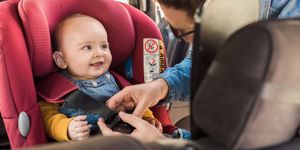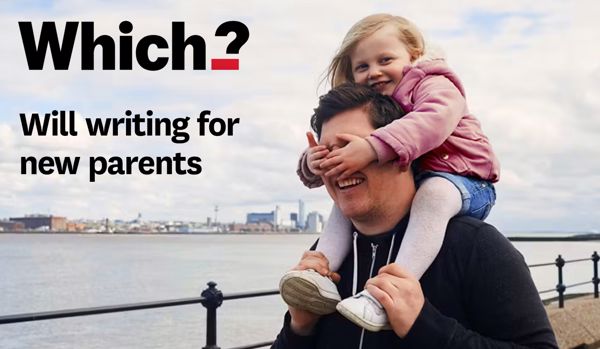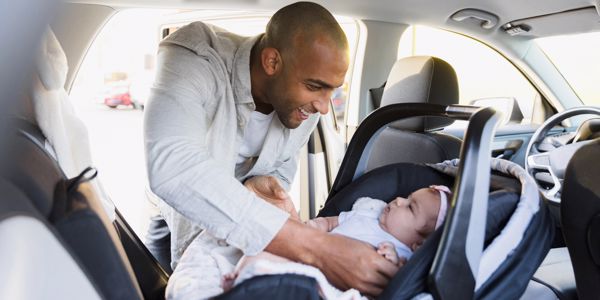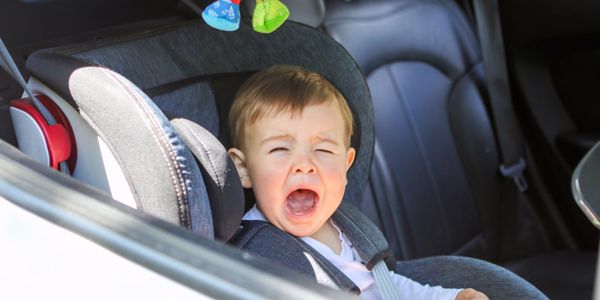What do you do when your baby or toddler outgrows their car seat? Stuff it up in the loft to forget about for a few years? Reuse for a younger sibling? Pass on or sell to a friend or stranger? Or take down the tip to go into landfill?
Car seats are one of the few product areas (along with cot mattresses) where you’re advised to avoid buying second-hand or passing old products on to others for safety reasons.
This means that with around 250,000 child car seats reaching their ‘end of life’ in the UK each year, and around 90% of these being thrown away (according to the Local Government Association), that’s around 225,000 car seats going into landfill each year.
So why is this and what can you do instead? Which? car seats expert Hannah Fox explains what options are available.
Recycling Car Seats
Car seats can be difficult to recycle because they’re made from a range of different materials, from moulded composite plastic and metal, to foam and synthetic fabrics. These can be hard to separate out for recycling in many standard recycling plants.
However, it’s not impossible. British baby brand Silver Cross launched a free recycling service for its car seats in 2021 which includes a free pick-up, while Maxi Cosi claims its car seats can be recycled at a local recycling centre.
If you do decide to take your car seat to your local recycling centre, it might be worth a phone call to them first to check if it’s possible to drop it off there.
Another option is to recycle your car seat via the Baby Equipment Zero Waste box. This is a service provided by Terracycle where you pay for a box that you can place any baby items that you want recycled into.
The prices aren’t cheap - a small box (measuring 25 x 25 x 46 cm) costs £136 - and costs increase to £269 if you pick the biggest size of box. But if you’re passionate about recycling, it is an option for parents.
Don’t sell or Give Away Your Car Seat
There’s a massive market in second-hand baby products, and for some products it’s a great way to get a bargain and reduce waste.
But a second-hand car seat may have been in a car crash. While outwardly it looks safe to use and structurally sound, it may have internal damage or hairline cracks that could affect the strength, durability and safety.
Even if you inherit a car seat from a friend or family member where you know its history, there’s still the risk that the car seat has a lot of wear and tear, or is not approved to the most up-to-date safety regulations.
Repairing a Child Car Seat
If you spot an issue with your child car seat that isn’t crash-related, you may be able to get it fixed, although this will depend on whether it’s still in warranty and you have proof of purchase.
Don’t try and fix it yourself - leave it up to the experts. Some manufacturers will cover replacement or repair if there’s a manufacturing defect, but won’t necessarily cover wear and tear.
Check out our guide on what to do with an old car seat for more information on manufacturer warranties.
Don’t forget to register your car seat after purchase (either via the manufacturer or retailer) and leave accurate contact details. If there’s a safety recall, this is how they will get in contact with you to warn of any issues and to flag if your seat needs replacing.
Take note of the car seat’s ‘life span’. Some manufacturers will specify when you should stop using the car seat (irrespective of whether it’s been fully used for that period).
For example, a baby to toddler car seat that’s used from birth to four years may have an overall lifespan of eight years. That means that if you then stuff the seat up in your loft for two years, it will only have a lifespan of two years remaining if you choose to use it for a second child.
Where Can You Dispose of a Car Seat?
If recycling your car seat isn’t an option, you’ll need to take it to your local rubbish tip.
Don’t try to leave the car seat out for the bin men to take away, as they’re likely to leave it.
For more on reusing baby products, head to our article on second-hand baby products.





